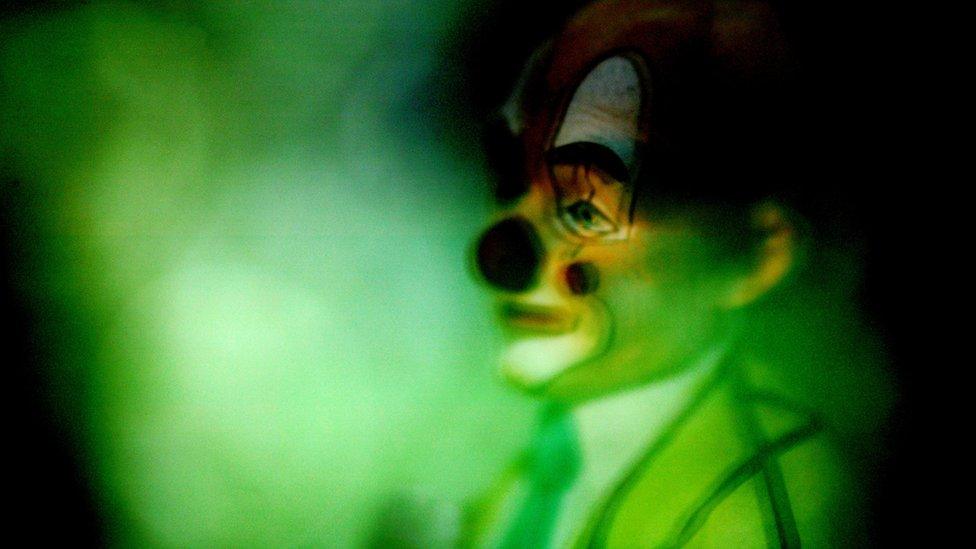Creepy clown craze: 'Nobody's laughing'
- Published

Are they pranksters after a laugh or criminals spreading terror? The craze to dress up as a clown and spread fear appears to be gathering pace in the UK.
The unlikely phenomenon, an import from the US, has become the talk of the school playground and is keeping police on their toes.
Schools are being forced into lockdown, children are terrified and police officers are handling hundreds of claims of sightings, reports suggest.
Now, ahead of Halloween, parents, head teachers, police officers and even the clown industry, are grappling with how to calm the craze.

'Who's behind the masks? Nobody knows'
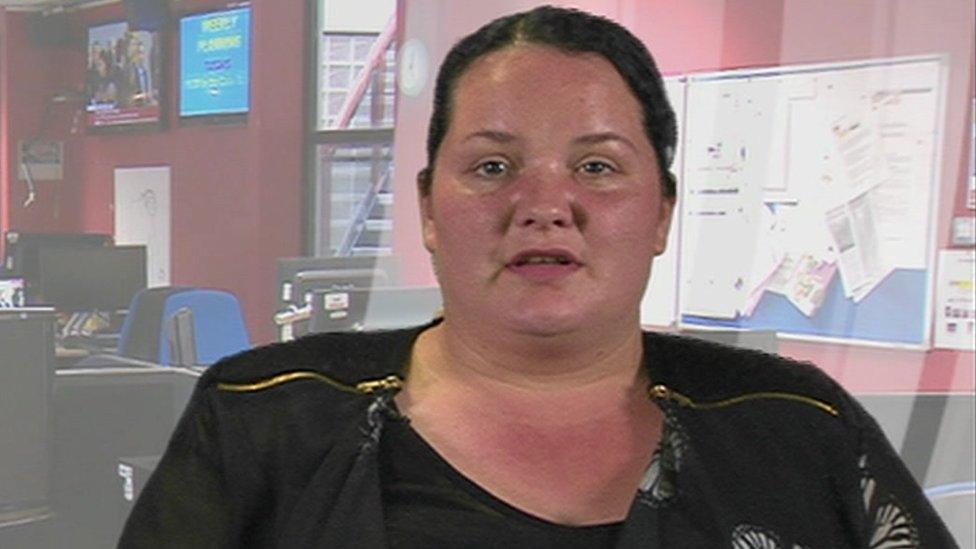
Charlene Paterson, a mother from the north east of England, has seen at first hand the impact of the creepy clown craze.
When clowns threatened a number of high schools in Newcastle, her daughter's was put into "lockdown" to make sure no one came in or went out, she said.
The effect was far-reaching, she told the BBC's Victoria Derbyshire programme.
"It's general fear, not just in her [daughter] but in all of her friends and everybody else in the high school.
"Who's behind the masks? You don't know. Nobody knows.
"You don't know if it's a 15-year-old that's looking for a giggle or a 30-year-old man who's looking to do something far, far different."
She described another incident in which five people dressed as clowns chased a group of 11-year-old children through their local park.
"It's not fair - it's certainly not funny.
"And it's going to get to the point where parents are going to start protecting their kids, stopping them from being scared."
She said she knew one five-year-old girl who had been left so terrified by the craze that she was having sleepless nights.
"That's not right - children shouldn't have that fear," she told the programme.

'Don't go outside dressed as a clown'
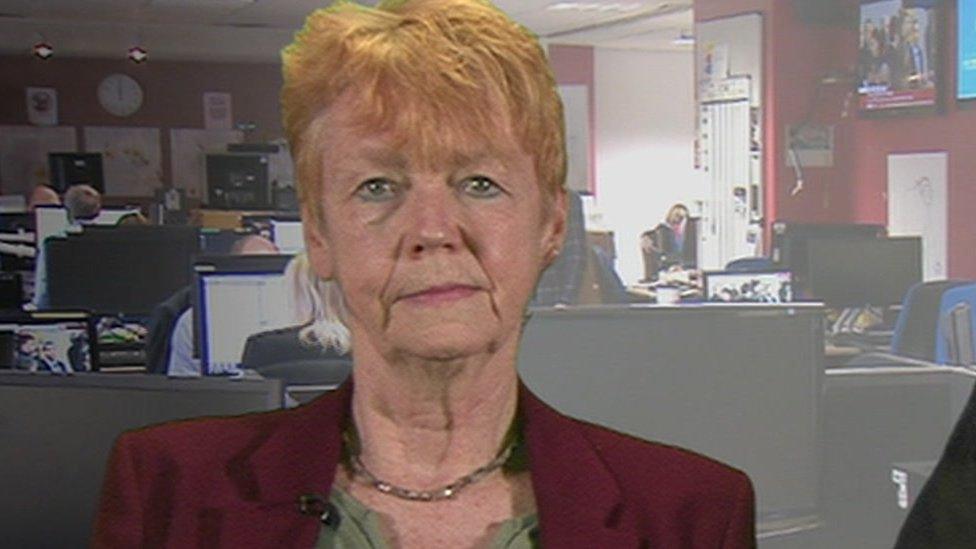
Vera Baird QC, Northumbria's Police and Crime Commissioner, said the police there had handled several hundred clown sightings, of which 13 or 14 were offences.
One was a 13-year-old boy who was dressed as a clown and carrying a sharp knife, she said.
"I'm sure it started off as just fun," she told Victoria Derbyshire.
"I think it's been a little bit taken over by some sinister people and now nobody knows who's in which camp and so the overall right message is to say: 'don't go outside dressed as a clown because people are going to take it the wrong way'.
"The trouble is the level of worry goes up with every story and so a clown who might just be joking becomes a frightening figure."
She advises calling the police if someone is scaring you, even if you think it may be a joke.
She acknowledged the craze was wasting police time and taking up a lot of resources.
Neighbourhood police were now being sent into schools to ask head teachers to advise children against dressing up as a clown, she said.
"However well-meaning and however you might have spent your pocket money on a clown's outfit in order to have a joke on your best mate - just don't do it.
"Because it could well be misunderstood and you could scare somebody," she said.

'Idiots ruining a child's imagination'
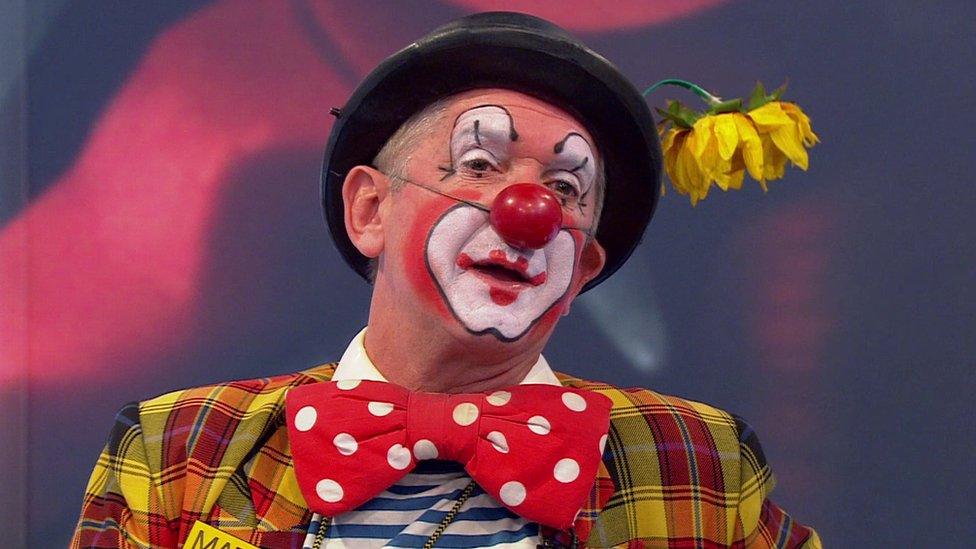
The craze has almost wiped the smile of the face of Mattie Faint, a professional clown for 45 years.
"When we spend our whole lives as clowns trying to make people happy and laugh, and these idiots within seconds can ruin everything for a child's imagination, it's very sad," he told Victoria Derbyshire.
Events had left the clowning industry devastated, he said.
Similar cases happened every year in the run-up to Halloween, he said, but this year was particularly bad.
Being a clown was a wonderful thing to do, he explained.
"Laughter is very cheap and very effective and it's the closest distance between two people, as Charlie Chaplin said. "We love to laugh and clowns are a catalyst to help you laugh."
Why is the latest craze of 'creepy clowns' so unsettling? Jonny Hoskins, a lecturer in the art of clowning, explains to BBC World Service’s Newshour.
- Published11 October 2016
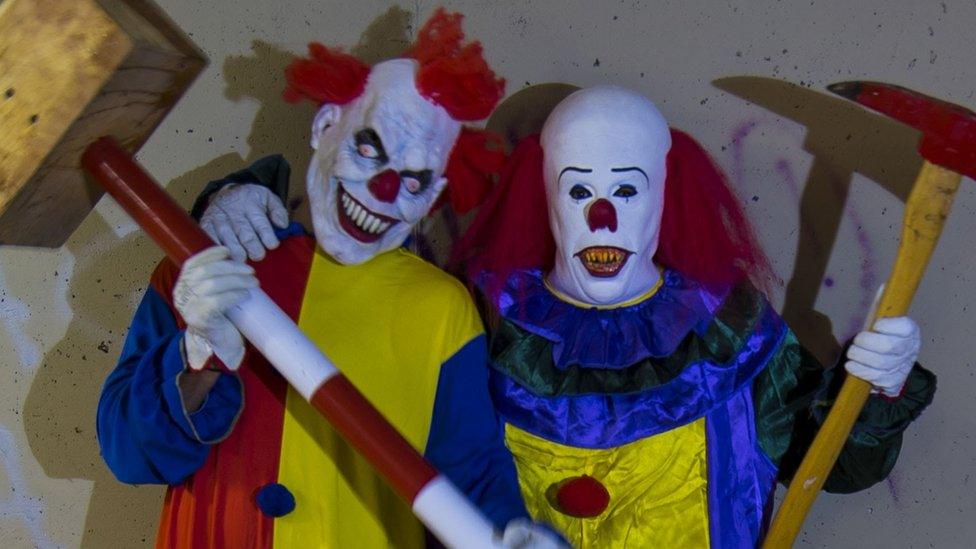
- Published10 October 2016
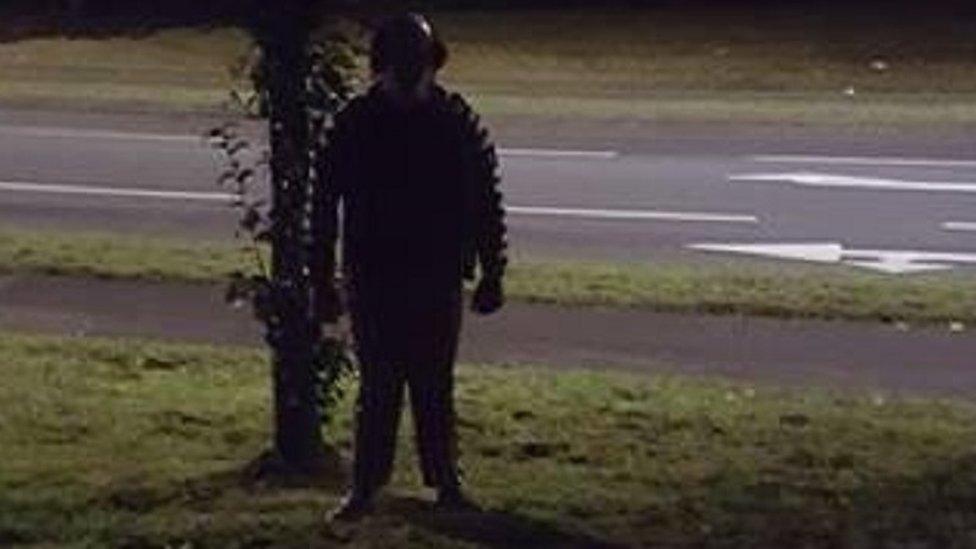
- Published11 October 2016
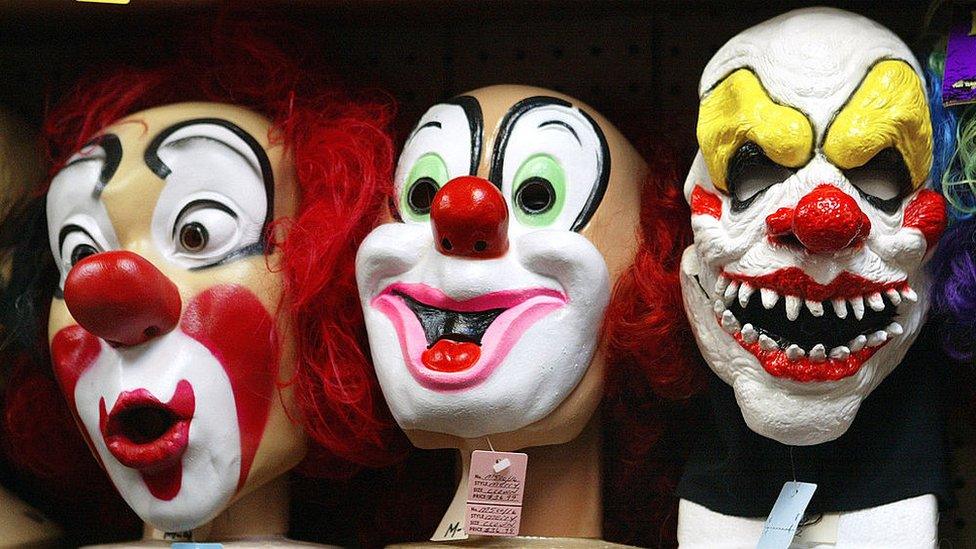
- Published10 October 2016
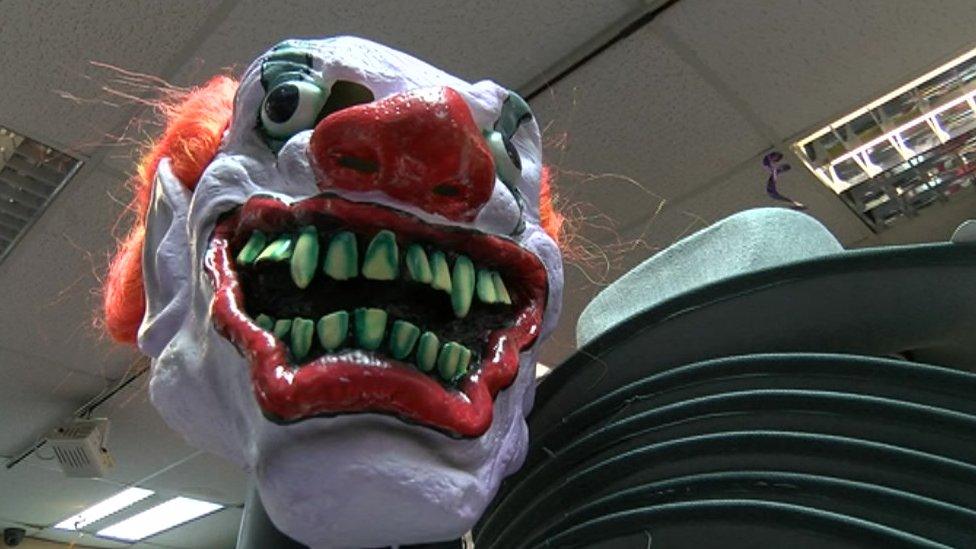
- Published7 October 2016
